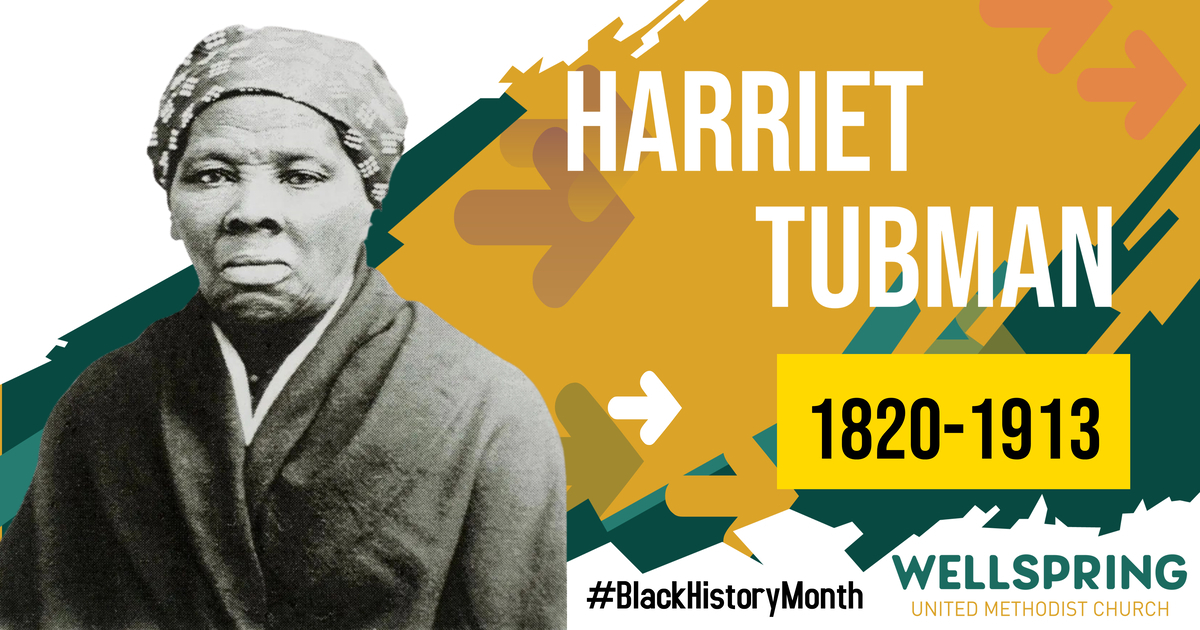“There is a moment in scripture when Jesus is talking to one of his disciples, Peter. They are sitting around an early morning fire and Jesus is explaining to Peter what his life was going to be like in the future. Peter’s response is telling. He points to a fellow disciple and asks, “What about him?”(John 21:18-23). We all tend to compare ourselves to others. Is my life easier? Is my life harder? Why does their life seem to go so well? Why do they get ____? We can stare into another person’s life and use it as a standard for our own. Even when we see someone’s life as difficult, we tend to gloss over the story and tell ourselves, “Their life couldn’t be that bad.”
Harriett Tubman’s life was “that bad.” She is known and applauded for her work with the Underground Railroad, but that work—as amazing as it was—was not even half of what she accomplished in her life. She had an incredibly difficult life and, despite that, managed to do some extraordinary things. This is a life we need to look at with admiration and also with a learner’s heart.
Harriet Tubman was born as Araminta Ross in 1822 on the Eastern Shore of Maryland. By age five, her owners rented her out to neighbors as a domestic servant. She endured whippings, starvation and hard work as she grew up. Early signs of her resistance to slavery and its abuses came at age twelve when she tried to stop her master from beating an enslaved man who attempted escape. In the scuffle, her master hit her in the head with a two-pound weight, leaving her with a lifetime of severe headaches and narcolepsy. She also started having vivid dreams and hallucinations, which she often claimed were visions from God and evidence that God was directly involved in her life. Her infirmity made her unattractive to potential slave buyers and renters, so she stayed with that same master until she married John Tubman, a free black man around 1844. She chose to take on her mother’s name and husband’s last name as her new name, becoming Harriet Tubman.
Contrary to legend, Tubman did not create the Underground Railroad; it was established in the late eighteenth century by black and white abolitionists. Tubman likely benefited from this network of escape routes and safe houses in 1849, when she and two brothers escaped north, leaving her husband behind. She ended up using this same Underground Railroad 13 times as she returned to the South and led about 70 people escape.
Because of her work, Tubman was deeply admired by abolitionists in the North, Tubman became a trusted friend and advisor to many, which earned her a role in the Union Army as a scout, spy, nurse and confidante of generals. She performed all of these roles even though she was unable to read! And she didn’t stop there. Tubman was the only woman to lead men into combat during the Civil War.
After the war, she moved to New York and was active in campaigning for equal rights for women. She raised funds to aid freedmen, joined Elizabeth Cady Stanton and Susan B. Anthony in their quest for women’s suffrage, and worked with white and black Methodist churches in Auburn to fight for the rights of minority, disabled, and aged people. She even opened a nursing home for African Americans on her property in New York.
“Moses of her people,” as Tubman was known, passed away at the age of 90 from pneumonia. She was buried with military honors at Fort Hill Cemetery in Auburn, New York. As a person who cares deeply for the freedom of people, especially women and children, my admiration has only grown for this barely five-foot woman who rose above the environment she was born into and changed the lives of so many, unwilling to let disability, pain, illiteracy, or society’s expectations deter her from doing all she could do.

